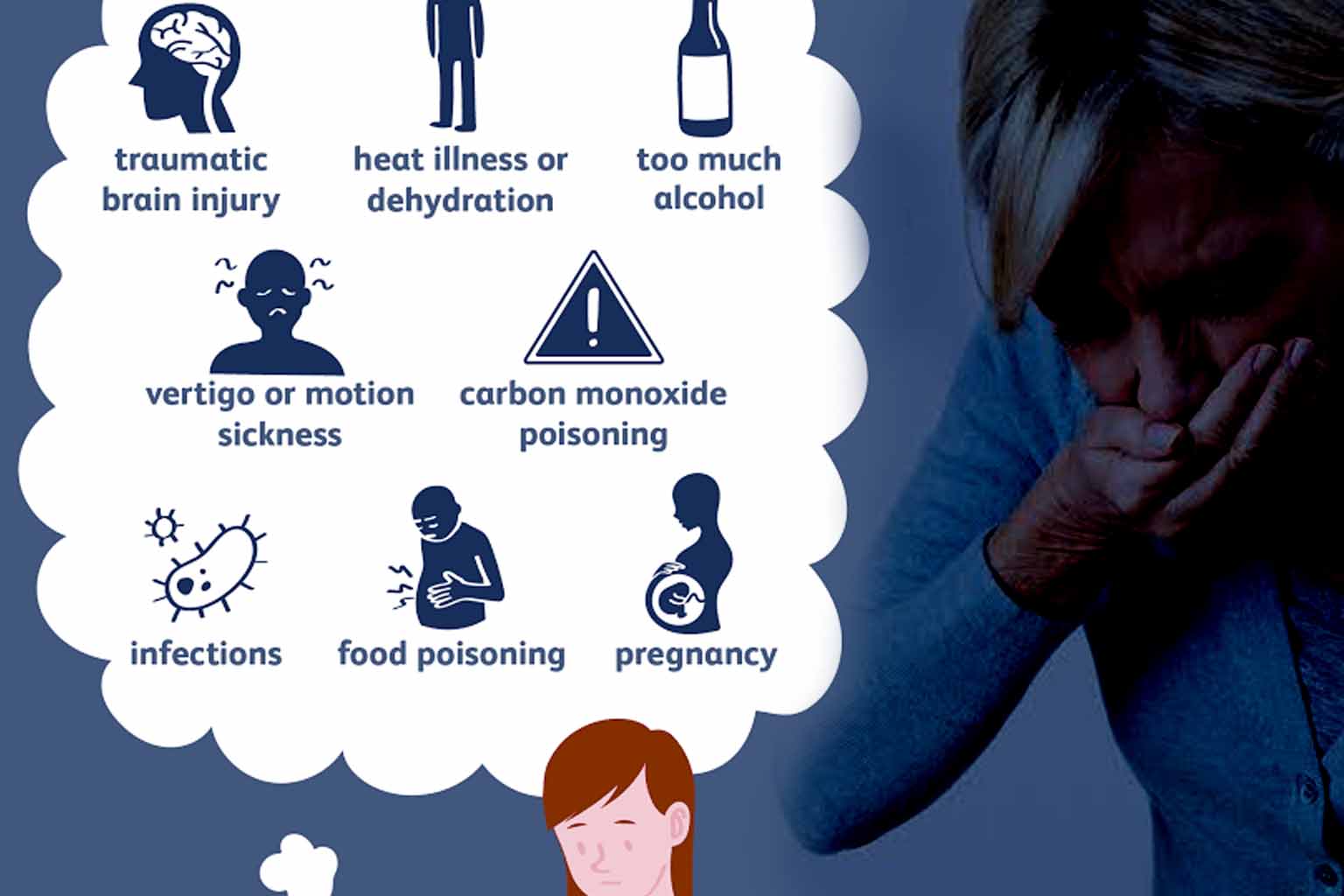What is Nausea?
Nausea is an uneasy sensation in the stomach which includes the urge to vomit. Nausea is common and is usually not a matter of concern. However, if you are experiencing nausea too frequently or for a long period of time, it may symbolize a more serious underlying condition. In this article, we mention the probable causes of nausea, its treatment and prevention.
Causes of Nausea
It is quite common and a variety of conditions may cause it. The common causes are:
When you feel stressed or anxious, your body releases hormones which makes you feel restless and nauseous.
A part of ‘morning sickness’ in pregnancy, the exact cause of nausea during pregnancy is not known yet, but the pregnancy hormones and sensitivity of stomach are expected to have a connection to it. It is usually a symbol of a healthy pregnancy.
Drugs affect the nervous system which stops it from functioning normally, inducing effects like vomiting. Drug abuses can be fatal.
- Motion sickness/ Sea sickness
Nausea during motion or due to sea is caused by the imbalance of the ear, the eyes and the sensory receptors. It is quite unpleasant but isn’t life-threatening.
Alcohol interferes in the normal working of the body and especially the stomach, which causes nausea. Excessive alcohol is also known to cause nausea by irritating the stomach lining.
- Gastroesophageal reflux disease ( GERD)/Acid reflux
These conditions occur when the contents of the stomach travel backwards between the oesophagus and the throat. They cause conditions like heartburns.
Binge eating hampers the normal functioning of the stomach since the stomach has a limited capacity. It causes the food to rise up which induces nausea.
Migraine or vertigo makes one feel restless which upsets the stomach and causes nausea.
A blockage cuts off blood supply from parts of the intestine which causes effects like nausea and bloating.
Strong or foul odors send signals to the brain which causes the cough and gag mechanism to work and thus, it occurs.
Overactivity hampers blood flow in the stomach and causes nausea.
- Side effects of medications
Medicines such as NSAIDS irritate the lining of the stomach and causes nausea. It is also caused by the interaction of different medications or the inability to digest a medication.
Some allergies cause nausea, especially allergies from food. Our immune system induces a protective mechanism against those foods which results in vomiting.
Concussion affects body balance which induces nausea. Nausea resulting from these conditions should last a few hours and it usually heals on its own. If it lasts for more than 24 hours, medical supervision is advised.
Nausea As A Symptom
It can also be a symptom of serious conditions such as:
 Chronic Nausea
Chronic Nausea- Ear infections
- Heart attack
- Liver problems
- Certain forms of cancer like liver and intestinal
- Food poisoning
- Issues with organs such as gallbladder, kidney and pancreas
- Stomach ulcers
- Meningitis
- Brain tumor
- Depression
When Should you visit the doctor?
Some causes are extremely serious and need urgent medical attention. If you are experiencing nausea with any or all of the following symptoms, urgent medical attention is advised.
- Confusion, severe headache or stiff neck
- Blood in urine
- Breathing problems
- Blurred vision
- Severe stomach ache
Treatments
It is treated by treating the underlying conditions. Normally, it can be treated easily by:
- Drinking enough fluids
- Eating light and easily digestible foods
- Having smaller but frequent meals
- Avoiding exercises after eating
- Taking antiemetics
Home Remedies to Get Rid of Nausea
Don’t want to rely on drugs? Here are some promising home remedies that will subside it instantly:
- Apply ice or something cold to the back of your neck
- Bite onto a little piece of ginger and keep it in your mouth
- Drink chamomile tea
- Message the inner part, two and a half inches of your wrist, in a circular motion
- Try CBD oil
Prevention
Prevention is always better than cure and thankfully, it can be prevented by taking simple steps like:
- Getting enough rest
- Exercising regularly
- Eating low fat and healthy foods
- Drinking enough water
- Maintaining a proper posture
- Avoiding excessive stress
Conclusion
It is treatable and preventable unless it is occurring from a serious issue. Occasional nausea is very common and is absolutely harmless. Prolonged nausea is a symptom of serious conditions and requires medical supervision.
Also Read: Fight Irritable Bowel Syndrome

